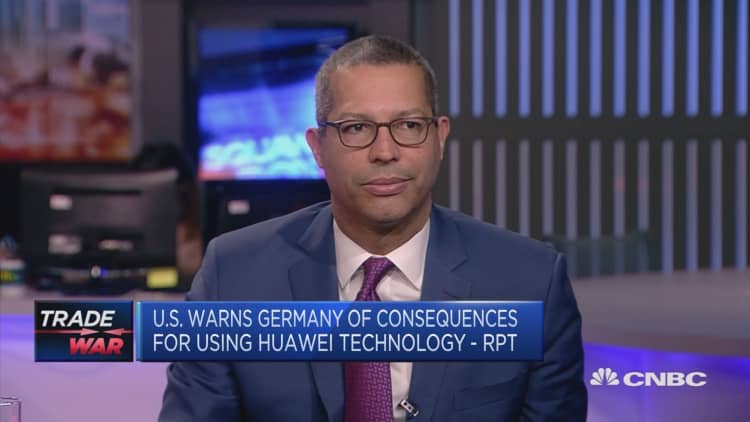Stubborn politicians could have a destructive influence on the U.S. economy later this year, a UBS economist told CNBC this week.
Seth Carpenter, U.S. chief economist at UBS, told CNBC's "Squawk Box Europe" that "toxic" and "intractable" politics were already weighing on markets, and posed a threat to the U.S. economy.
"The biggest concern for all of us is luckily not in the near-term, but to the extent that there's doubling down on the desire for the border wall," he said. "If that continues until late summer, early autumn – where the debt ceiling is really going to be a binding constraint – I think that's where we could start to worry. People become dug in, and if the administration doesn't take responsibility for ensuring that the debt limit gets raised – especially when Republicans control one of the Houses of Congress – then I think we could have markets truly on edge as it comes down to the wire."

Data coming out of the U.S. were also reflecting that geopolitical tensions were causing economic damage, Carpenter told CNBC Tuesday.
"The retail sales number for December was just terrible," he said. "We think at least part of it is the trade war with China disrupting various firms (and) disrupting people's confidence – and when people get worried they tend to pull back. The January number was a little bit higher than maybe you would've hoped for, but the revisions (to the December figure) are truly troubling and it sets the year off to a really soft tone."
The U.S. economy has slowed in recent months, with poor data and the ongoing trade war with China impacting market sentiment.
While a tight labor market is driving up wages, retail sales for December were much weaker-than-expected, job growth stalled in February, and the U.S. trade deficit reached a 10-year high in 2018 – despite the Trump administration's attempts to shrink the gap by imposing tariffs on imports.

